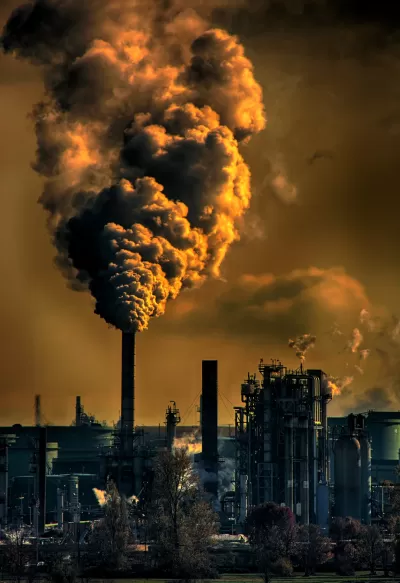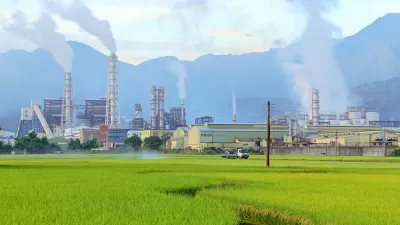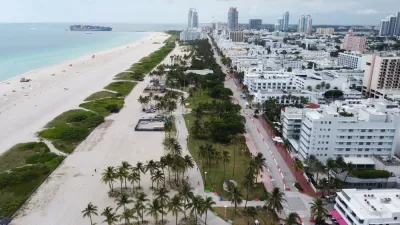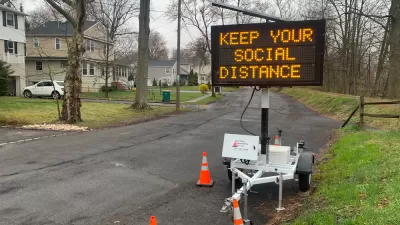The environmental gains at the beginning of the pandemic were only temporary., and there are signs more signs every day that the economy will be dirtier than ever in the future.

"The popular notion that the COVID-19 pandemic has been 'good for the environment'—that nature is recovering while humanity stays at home— appeals to many people grasping for some upside to the global tragedy. Reality, though, may not cooperate with such hopes," writes Beth Gardiner, author of Choked: Life and Breath in the Age of Air Pollution.
While early positive signs have begun to dissipate, the more gloomy signs that the recovery could take steps in the other direction are starting to emerge.
"In early April, with shutdowns widespread, daily global carbon emissions were down by 17 percent compared to last year. But as of June 11, new data show that they are only about 5 percent lower than at the same point in 2019, even though normal activity has not yet fully restarted."
But that's not the only gloomy news. In some parts of the world more capable of reopening the economy than the United States, like China, the recovery is proving dirtier than the pre-pandemic.
"As factories pushed to make up for lost time, pollution returned in early May to pre-coronavirus levels, and in some places surpassed them for a short time, although it’s fallen back a bit since. Meanwhile, provincial officials desperate for the economic boost that comes with any construction are giving the go-ahead to a raft of new coal-fired power plants," reports Gardiner, citing data provided by Lauri Myllyvirta, lead analyst at the Helsinki-based Center for Research on Energy and Clean Air.
Then there are the actions of governments, like the United States, which rolled back environmental protections during the pandemic, allowing polluters free rein if and when business does eventually pick back up. A similar free-for-all is already underway in Brazil, where "illegal loggers have accelerated their destruction of the Amazon rainforest while the coronavirus ravages the nation," according to Gardiner.
FULL STORY: Why COVID-19 will end up harming the environment

Alabama: Trump Terminates Settlements for Black Communities Harmed By Raw Sewage
Trump deemed the landmark civil rights agreement “illegal DEI and environmental justice policy.”

Study: Maui’s Plan to Convert Vacation Rentals to Long-Term Housing Could Cause Nearly $1 Billion Economic Loss
The plan would reduce visitor accommodation by 25% resulting in 1,900 jobs lost.

Planetizen Federal Action Tracker
A weekly monitor of how Trump’s orders and actions are impacting planners and planning in America.

Grand Rapids Mayor Proposes Garage Conversion Plan
The mayor says allowing homeowners to convert garages to dwelling units could alleviate the city’s housing shortage.

Baltimore Ordered to Improve Sidewalk Accessibility
The city is one of many to face lawsuits for failing to comply with the Americans with Disabilities Act.

This Toronto Suburb Has More Bus Riders Than Columbus, Ohio
Brampton, Ontario used gradual improvements in service to prove that if you build it, they will ride.
Urban Design for Planners 1: Software Tools
This six-course series explores essential urban design concepts using open source software and equips planners with the tools they need to participate fully in the urban design process.
Planning for Universal Design
Learn the tools for implementing Universal Design in planning regulations.
Smith Gee Studio
Alamo Area Metropolitan Planning Organization
City of Santa Clarita
Institute for Housing and Urban Development Studies (IHS)
City of Grandview
Harvard GSD Executive Education
Toledo-Lucas County Plan Commissions
Salt Lake City
NYU Wagner Graduate School of Public Service





























